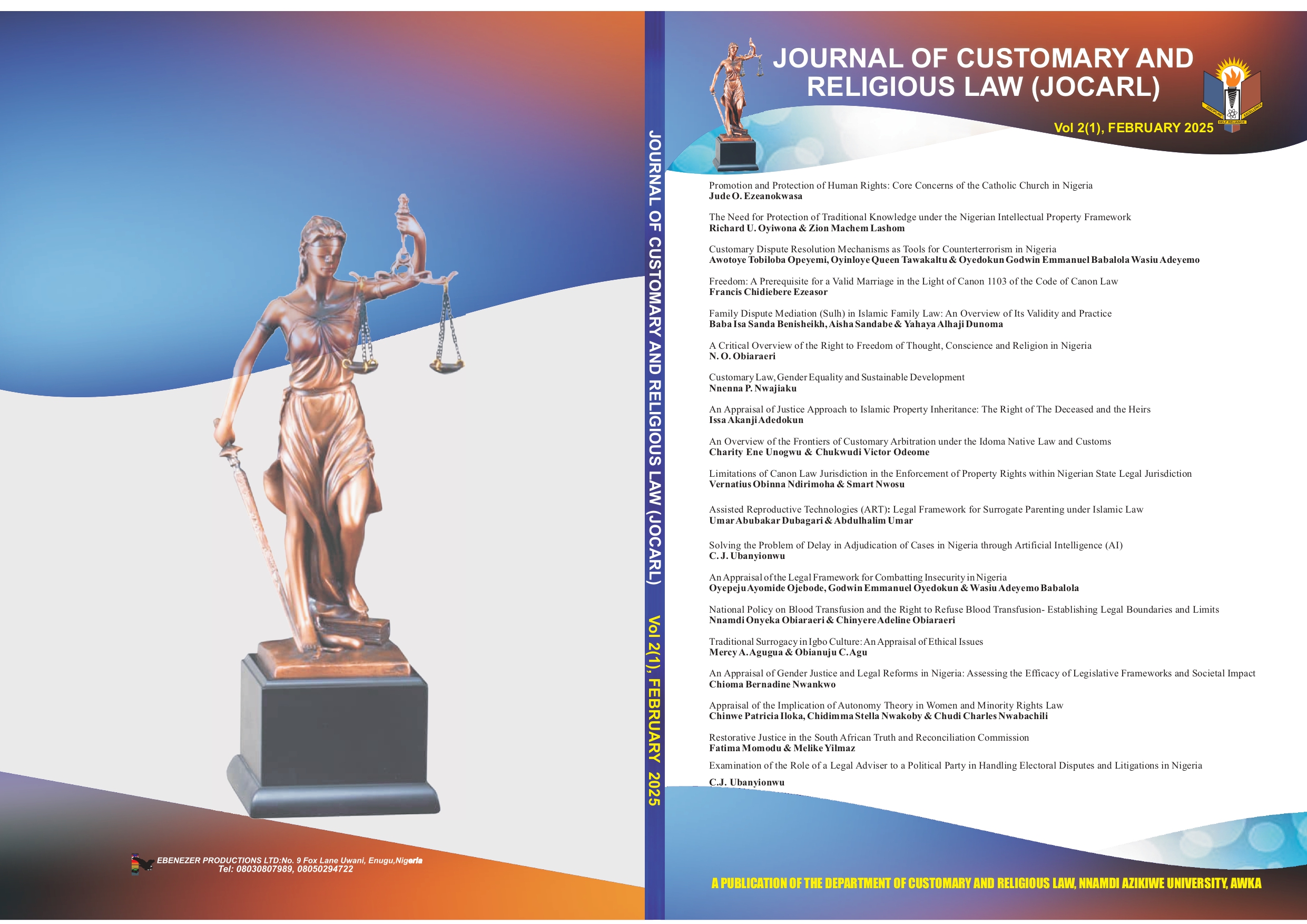Appraisal of the Implication of Autonomy Theory in Women and Minority Rights Law
Keywords:
Autonomy, Implication, Law, Minority, Rights, Theory, WomenAbstract
Autonomy theory shifts the emphasis from women having what men have to women being able to stand on
their own make their own decision and pursue their own notion of a life well lived women's rights advocates
make similar assumption when they argue that women should have freedom to control their own lives and
make their own reproductive choices. Therefore, the aim of this article was to deal with sex and consent,
pregnancy and autonomy, economic autonomy and women's poverty, the challenges in the implementation
of the autonomy theory and the solution to these challenges. The research methodology was doctrinal
approach, using expository and analytical research design. The main sources of data collection were
various legal literatures, both from the physical library and the e-library. it was found that the concept of
autonomy has been developed in decisions concerning sexual and reproductive rights, including those
connected to assisted reproduction techniques, access to abortion services, informed consent, and sex
education, as well as the element of non-consent in sexual violence laws. It is also found that the doctrine
has been embraced in decisions concerning LGBTIQ+ communities, interconnected often with the exercise
of gender identity and expression and the rights to live free from violence and discrimination. It was
recommended that in order to cure the defect of Autonomy theory, government should be responsive to
provide and cater for women to cure the defect of poverty. Thus, the government should provide a regulatory
machine to cure the defect of lack of manpower and inefficiency in workplaces as a result of women's limit
of productivity.

